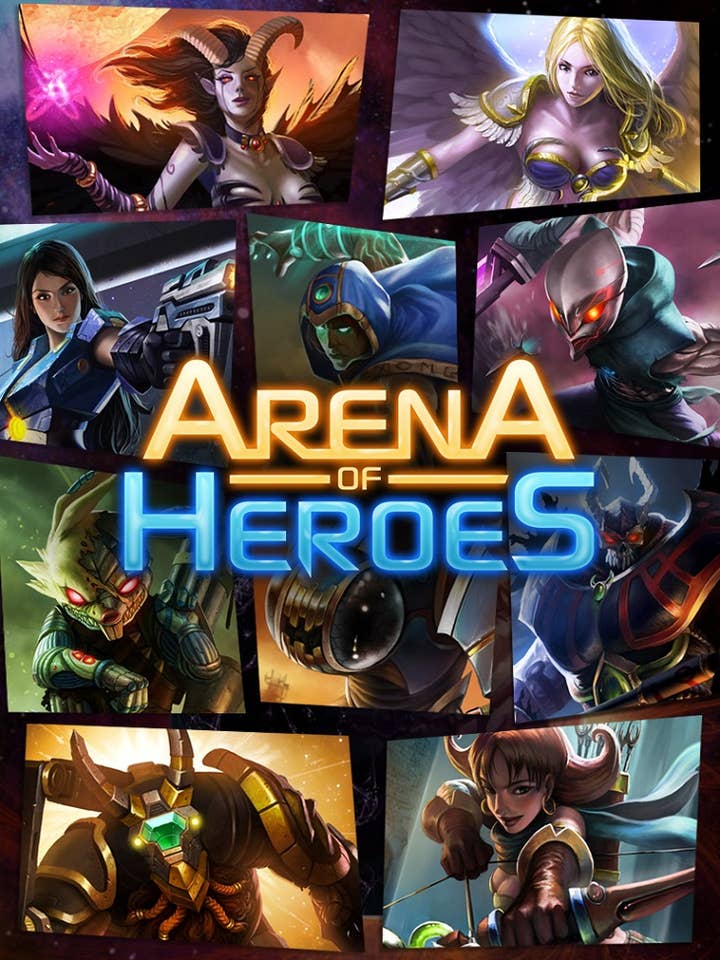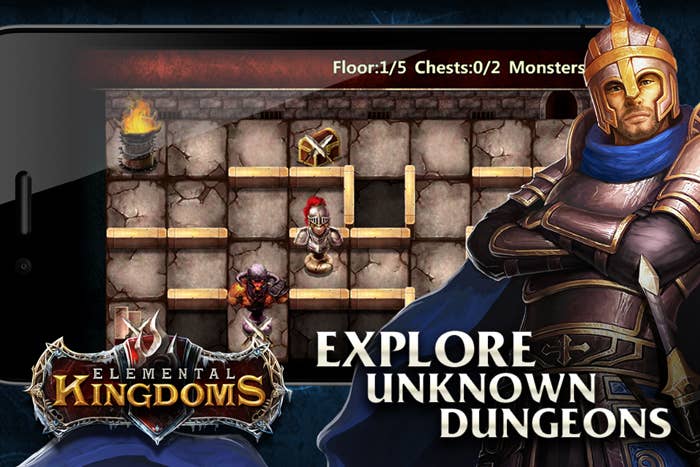Perfect World aiming for 20% success ratio in mobile
GM Fabien-Pierre Nicolas details strategy for free-to-play PC publisher's big push into phones and tablets
In Perfect World's perfect world, four out of five of its mobile game projects would still fail. The publisher of free-to-play PC games like Star Trek Online and Blacklight Retribution today announced it is getting into the mobile space as a developer and publisher of games for core audiences, specifically from the action RPG, strategy, trading card game, MMORPG, and MOBA genres. Former DeNA West director of marketing Fabien-Pierre Nicolas is heading up the effort as GM for Perfect World's new division, but he has no illusions about the difficulty of finding success in the mobile market.
"Our goal is to aim for a 10-20 percent success rate in games," Nicolas said. "Even with our game know-how and expertise in detecting great games, nobody could guarantee that you'll be successful if you publish with me in this space."
Nicolas said it has always been tricky to predict success in entertainment industries. Whether it's a pre-packaged pop act that falls to find an audience or a blockbuster bomb like John Carter, there's no guarantee of success no matter how experienced the people putting the project together may be. Despite that, Nicolas denies the suggestion that success in the mobile market is more of a lottery than a meritocracy.
"The worst that could happen for gamers as well as us as a company is to try and go all out and publish 100 games in one year."
Fabien-Pierre Nicolas
"I think unpredictability is really not a lottery, but it's different between entertainment," Nicolas said. "So you see a 5-10 percent hit rate even though you have a lot of the right elements in place. But 5-10 percent is better than 1 percent."
Nicolas sees two big challenges standing in Perfect World's way as it gets into the mobile game. First, he's concerned about managing the ramp-up intelligently.
"The worst that could happen for gamers as well as us as a company is to try and go all out and publish 100 games in one year," Nicolas said. "I did that in the past. Because in that case, you don't have enough time to pay attention to your gamers, your community. And you can't pay enough attention to the studios and give each game enough attention or support. Which pretty much guarantees those products won't do well."
To start with, Perfect World is publishing four mobile games over the next few months: iFree Studio's trading card game Elemental Kingdoms, Agent Disco's RPG adventure The Null Society, Fugazo's turn-based multiplayer BombBuds, and Sneaky Games' asynchronous MOBA Arena of Heroes. The last of those games has actually already been released once, but Perfect World is republishing it with a number of tweaks like a playable tutorial, faster pace, and regular events. Nicolas said the company will ramp up the release rate as time goes on, but not the expense of the level of service it provides, both to the game developers and the players.

Perfect World is being cautious about the ramp-up speed of not just how many games it releases, but about how widely it releases them. Nicolas said one of the last big mistakes companies are still committing in the games-as-a-service model is that they try to push the games worldwide too early.
"Giving the team time to iterate before you try to deploy the game worldwide and pour a lot of users in is really key in this space," Nicolas said, adding that Perfect World's time between a soft launch and a worldwide roll out could be two or three months.
The second major challenge facing Perfect World is simply the increasing quantity and quality of global competition, which Nicolas characterized as "incredibly fierce."
"People already know Kabam, Supercell, GungHo, and King," Nicolas said. "But in the coming months, you're going to see a lot of players from China coming. Watch out for all those very aggressive start-ups who receive a great amount of funds in China because the Chinese market has not been seeing IPOs for a few months, so a lot of money flowing to mobile game studios like it was the case two or three years ago in the US. From China, and probably from Korea as well."
"The minimum you can do as a publisher is respect your external or internal studios by trusting them to talk to Apple or Google."
Fabien-Pierre Nicolas
Nicolas also namechecked Kabam, Supercell, GungHo, and King as the companies in whose footsteps Perfect World wants to follow. GungHo is an especially apt reference point, given the company was a PC MMO publisher known for hits like Ragnarok Online before it moved into mobile and found breakthrough success with Puzzle & Dragons.
As for how Perfect World will attract developers, Nicolas said the company offers four big selling points. First, they are promising consulting to help developers learn what works in mobile and free-to-play. A lot of publishers do this, Nicolas said, but wait until the last minute, slapping a mismatched monetization system on a game that wasn't built for it. Perfect World wants to be offering its input earlier in the development process to ensure that sort of conflict doesn't happen.
Second, Nicolas stressed transparency in the company's dealings with developers. As an example, he said Perfect World will bring third-party producers into its meetings with Apple and Google, or hold weekly calls to update them on marketing efforts.

"The best person to pitch a product is the person who's making the game," Nicolas said. "It's way more interesting to talk to a producer than a marketing manager. The minimum you can do as a publisher is respect your external or internal studios by trusting them to talk to Apple or Google."
Third, Nicolas said Perfect World partners will benefit from what he learned about user acquisition as he helped grow DeNA West from the ground up to $25 million in monthly revenue.
"We were in a privileged position that we learned so much because DeNA became one of the main players in this space," Nicolas said. "So we want to provide this expertise, again with transparency, to our developer."
Finally, Nicolas said the company's focus on core gamers will help it effectively cross-promote titles between audiences. Even if cross-promoting a match-three game in a trading card game boosts installs for the latter, it doesn't mean much if the new audience isn't interested in the game. As Nicolas put it, "10,000 installs don't matter if none of them retain or monetize."

